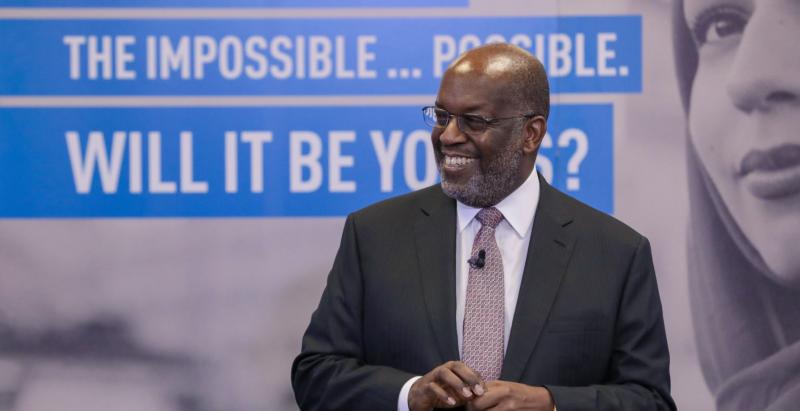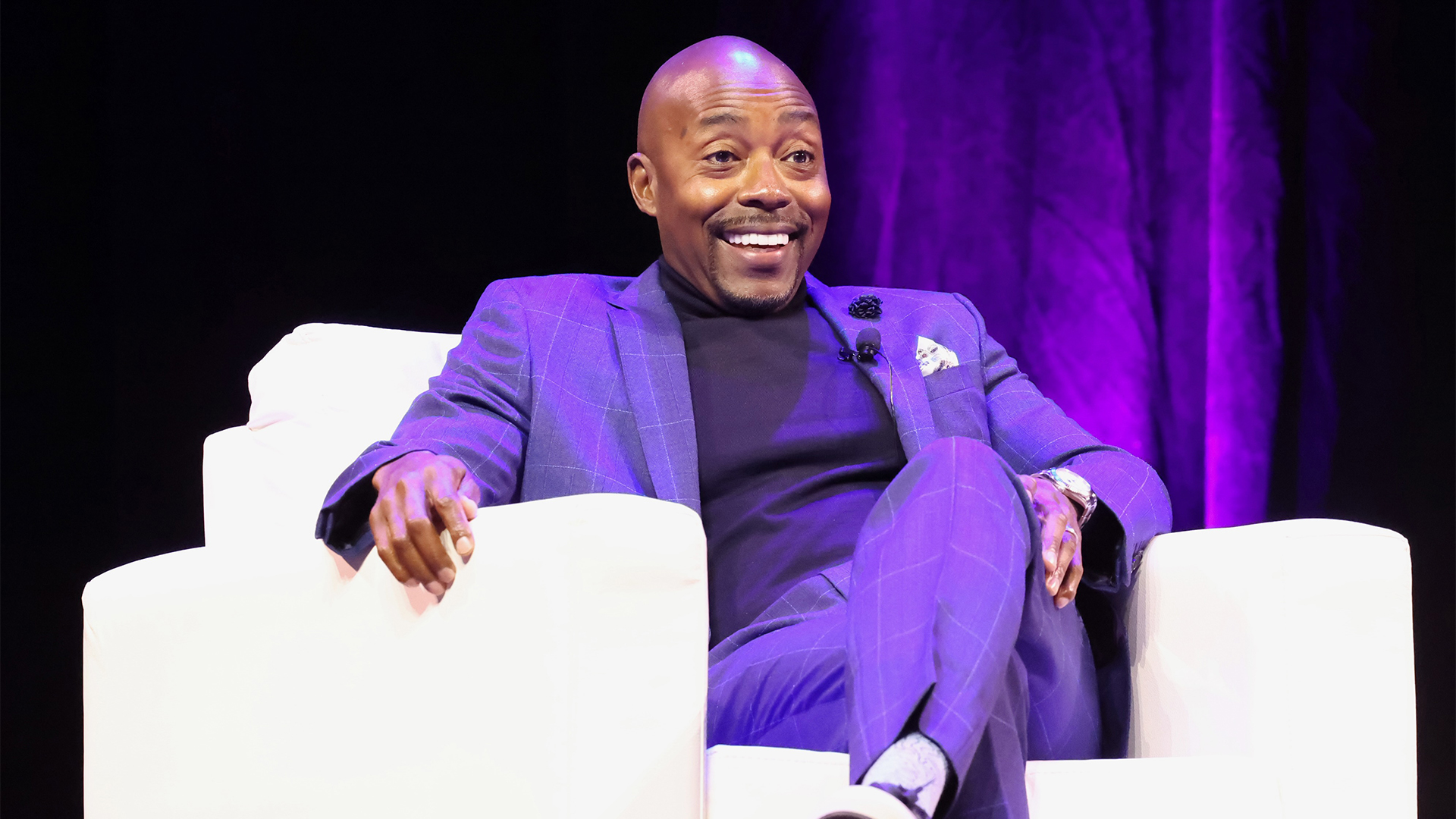To call Bernard J. Tyson an industry giant would still be a significant understatement. As Chairman and CEO of Kaiser Permanente, Tyson heads an organization that provides care for 12.3 million members at 600+ locations across eight states and the District of Columbia.
We had the fantastic opportunity to talk with him ahead of AfroTech 2019 about his career, the future of health care, and how Kaiser Permanente fights for equitable health care for its members and the 68 million residents in its surrounding communities.
This interview has been edited for length and clarity.
AfroTech: Mr. Tyson, you’ve been in the health care industry for about 35 years. In fact, your LinkedIn profile indicates that you studied health service management as an undergraduate and also earned an MBA with a focus on health services administration. Can you tell us what sparked your interest in health care?
Bernard J. Tyson: When I was a child, my mother spent a lot of time with her doctor and in a hospital setting because of her illness. I grew up admiring the physician in the white coat and how he cared for my mom. But, not just my mom — he cared for and cared about us as well. That experience clearly got me interested in health care. Growing up, I specifically wanted to be a doctor, and I ended up going down the administrative track later on. But, I always had an interest in being in health care.
AT: What do you consider to be the most significant breakthrough in the health care system over the past 35 years?
BJT: One of the first major projects I worked on when I joined Kaiser Permanente was as part of the project team that opened our first cardiovascular program in San Francisco for open-heart surgeries and everything associated with heart care. At that time, a patient in a hospital for open-heart surgery could stay in the hospital for up to two weeks. Now, 35 years later, you can have open-heart surgery in the morning and go home in the evening, so that’s an incredible breakthrough.
AT: During your tenure at Kaiser Permanente, what accomplishment are you most proud of?
BJT: Being a part of the leadership that ultimately helps to frame our brand position around “Thrive.” Our work was to make sure that everyone understood that we stand for health and prevention and helping people to live the healthiest life possible. This is why we are here. We obviously provide the highest quality care and accessibility when it’s needed, but our passion is around keeping people as healthy as possible.
AT: In recent years, as a society, we’ve become more aware of the disparities in the quality of health care provided to Black women when compared to other racial and gender groups, especially during pregnancy and childbirth. Can you tell us a bit about how Kaiser Permanente is joining the effort to correct this?
BJT: We have culturally-competent care, protocols, guidelines, tools and expertise. We are very clear that equity of care is a priority inside of Kaiser Permanente. A lot of organizations think of it as equality, which means everybody gets the same. We’ve blown past that — it’s a given around equality. What we’re really focused on now is to make sure that we understand the unique nuances of each of the different populations that we’re privileged to take care of, and to make sure that we’re delivering on the quality that is needed to assure healthy babies. For example, healthy moms, addressing issues that might be unique to the circumstances and not generic across the board. We have — and have had for many years — Well-Care programs for our women of color going through childbirth. That is why you won’t find those kinds of statistics inside of our population.

AT: Are there any emerging technologies that you’d like to see develop further over the next few years? What catches your eye at the moment?
BJT: I think that the tools and technology that now allow people to be remote and still get what they need is where I see the breakthroughs happening. And that’s both the technologies you’d expect like iPhone, iPads, and computers that allow you to have access to the care delivery organizations like Kaiser Permanente’s integrated system. Those are still big winners in the industry. Also, sensor technology — which we’re using and embracing when appropriate — gives us the ability to monitor someone’s vital signs without them being directly in the hospital or medical facility. They could be at home, and we can still wrap our care around them 24/7.
The technology that allows members to do self-care — and then that information is beamed up to Kaiser Permanente’s record systems and then monitored by qualified nurses and physicians — is really a new platform now that allows us to think beyond the four walls of Kaiser Permanente. So, what used to be an illness or concern that would lead to hospitalization can now be monitored in a home setting or a 24-hour facility. You may not need to be in the hospital, but you might be a little bit too sick to be at home by yourself. This is a facility where we take care of your sick care needs, then you are discharged back to your home.
AT: In the health care discussion, we talk a lot about physical health, but mental health often gets overlooked, especially in Black communities. Can you tell us how Kaiser Permanente addresses these problems specifically?
BJT: It’s one of our biggest initiatives that we’re working on, which is the redesign and reimagination of mental health services, inclusive of everything. Starting with the issue of the stigma, we spend advertising dollars to destigmatize mental health. I talk a lot about how we, as an industry — for whatever reason — have disconnected the head from the body. It’s now time to reconnect the head to the body as we think about mental health as a part of the total health of mind, body and spirit. The reason why that is important is because then we start to look at mental health for what it is, which is something going on with the brain muscle, the organ. Just like we treat the heart, we need to be treating the brain.
The final thing is we are redesigning our delivery system to make sure that the behavioral specialists, psychiatrists and psychologists are all integrated into the medical program just like any other service provider. This is about reconceptualizing and destigmatizing mental health and dealing with it head-on.
AT: Do you find that your approach for destigmatizing mental health issues is different when you go between different racial or ethnic groups?
BJT: I think there are commonalities across all cultures and ethnic groups. Given our cultural competency as an organization, we’re very sensitive to the African-American experience in the United States. We are aware that it’s unique to any other nationality in the United States. One might want to ignore that reality. Still, the reality is that the historical beginning of the African- American experience in the United States in some ways continue. While we’ve made significant progress as a country, there are stigmas that we’re still working to overcome.
While the symptoms may be similar, the experiences that got us where we are may require some unique approaches in terms of destigmatizing mental health and letting people know that it’s OK to have a mental challenge and to reach out for help.
AT: Do you have any final thoughts to share with us leading up to the conference?
BJT: I’m really looking forward to this conference. I think it’s amazing that we have something like this in our hometown, the headquarters for Kaiser Permanente. It’s an honor that we are a part of the celebration and are excited for the wonderful opportunities ahead for both of us.
















